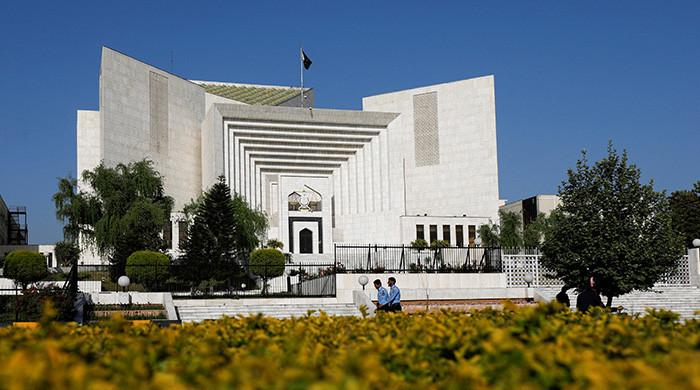Supreme Court Addresses Military Court Trials of Civilians
The Supreme Court is currently hearing petitions challenging the trial of civilians in military courts. Key points from the proceedings include:
- Justice Mandokhail questions the authority of court-martials to issue death sentences.
- The government is being urged to ensure transparency throughout the trial processes.
- Khawaja Harris asserts that civilians and military personnel are equal under the Constitution.
ISLAMABAD: During Wednesday’s proceedings, Justice Hasan Azhar Rizvi of the Supreme Court raised concerns that those conducting trials in military courts might lack a proper understanding of the Law of Evidence (Qanun-e-Shahadat Order, 1984).
A seven-member constitutional bench, presided over by Justice Aminuddin Khan, is hearing the petitions challenging the trial of civilians in military courts. The hearing has been adjourned until tomorrow. The bench also includes justices Jamal Khan Mandokhail, Musarrat Hilali, Muhammad Ali Mazhar, Hasan Azhar Rizvi, Naeem Akhtar Afghan, and Shahid Bilal.
Justice Rizvi further commented that evidence presented in military courts could be misinterpreted, thus potentially undermining the fairness of the legal process.
Justice Hilali also pressed the Attorney General Mansoor Usman Awan on how the state could ensure transparent justice within the military court system. She inquired what issues would arise if the government were to grant civilians the right to appeal.
Justice Mandokhail voiced several concerns, questioning the basis on which court-martials are authorized to impose death sentences and why complainants are sometimes allowed to conduct the trials themselves. He noted that even the Supreme Court lacks access to the records of military court proceedings and questioned what would remain if courts themselves were abolished. He also questioned whether the federation and provinces lacked trust in their own institutions, emphasizing that the purpose of these inquiries was to prevent unfair punishment.
Khawaja Harris, representing the Defence Ministry, defended the system by asserting that the Constitution treats civilians and military personnel as equal citizens. He contended that there is no inherent divide between these groups and argued that if military personnel are subject to trial, civilians should be as well. Harris also pointed out that appeals are not granted under the Civil Servants Act, with internal tribunals available to address grievances.
Justice Rizvi added that the Code of Criminal Procedure provides multiple avenues for appeal, extending up to the Supreme Court.
Attorney General Awan stated that both the judiciary and the executive are components of a unified justice system, with a shared objective of improving it. He indicated that he would aim to conclude his arguments quickly after Harris completes his responses, which are expected to continue the following day.
In the previous year, the Supreme Court’s constitutional bench had conditionally permitted military courts to announce verdicts in cases involving 85 suspects allegedly involved in the May 9, 2023, riots. The bench stipulated that the judgments of military courts would be subject to the Supreme Court’s verdict on the pending cases.
Subsequently, the military courts sentenced 85 PTI activists to “rigorous imprisonment” ranging from two to 10 years for their involvement in the May 9 protests. These sentences marked the conclusion of trials for those detained in military custody following the attacks on army installations and monuments.
In January, the military approved mercy petitions for 19 of the 67 convicts sentenced in connection with the May 9 riots on “humanitarian grounds,” according to the Inter-Services Public Relations (ISPR).
On October 23, 2023, a five-member bench of the Supreme Court unanimously declared the trials of civilians in military courts null and void, after admitting petitions challenging the trials of civilians involved in the May 9 riots.



Comments (0)
No comments yet. Be the first to comment!
Leave a Comment